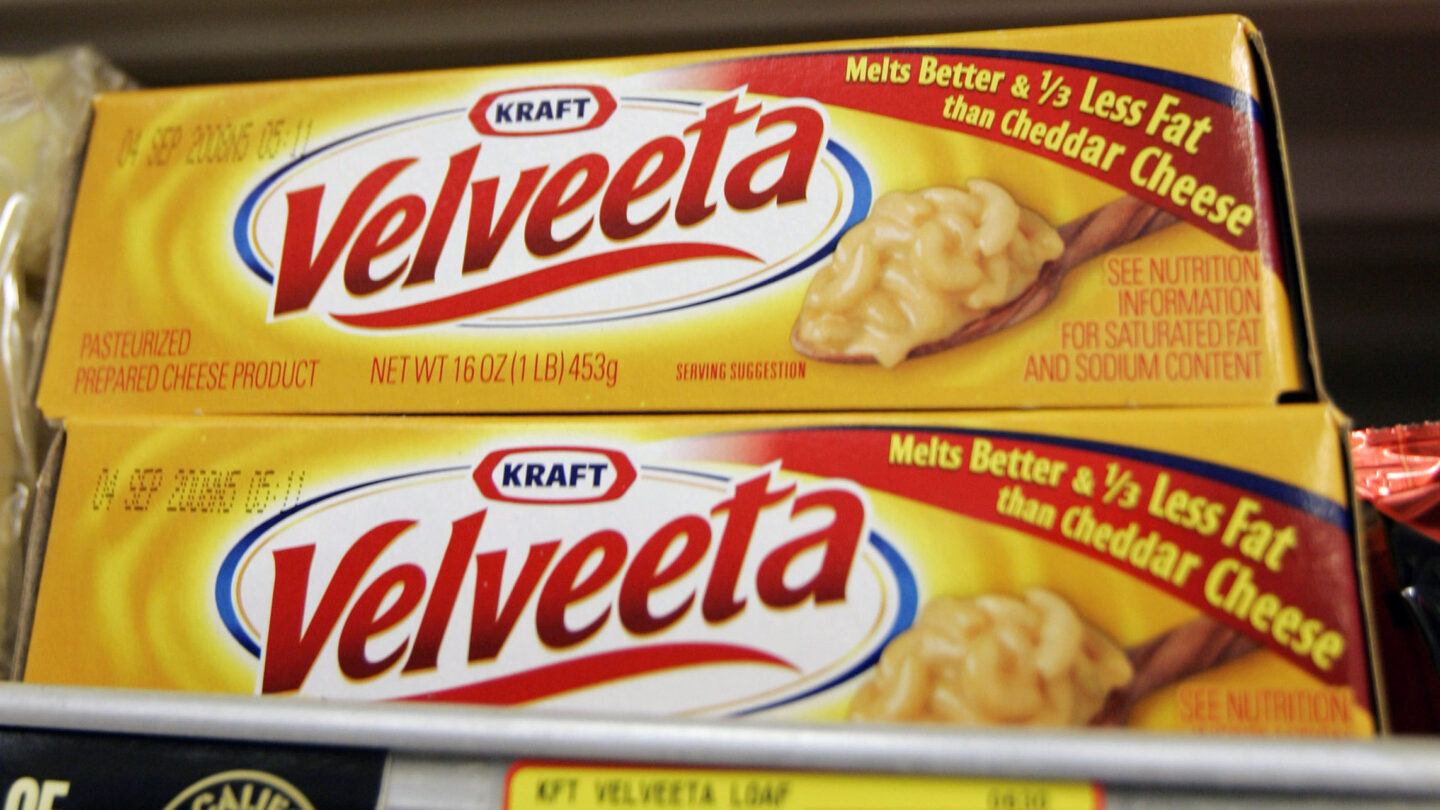A Florida woman is accusing Kraft Heinz of misleading advertising, based on the time it takes to prepare a single-serving cup of microwavable mac and cheese.
While the company markets its Velveeta Shells & Cheese as being “ready in 3 1/2” minutes, Amanda Ramirez says that’s only the amount of time each cup needs to be microwaved — and that the actual preparation process, from stirring in water to letting the cheese sauce thicken, takes longer (she does not specify how much).
A 15-page class-action lawsuit filed earlier this month alleges that parent company Kraft Heinz sells more of the product, and at a higher price, than it would if it didn’t mislead consumers about the pasta’s prep time.
“As a result of the false and misleading representations, the Product is sold at a premium price, approximately no less than $10.99 for eight 2.39 oz cups, excluding tax and sales, higher than similar products, represented in a non-misleading way, and higher than it would be sold for absent the misleading representations and omissions,” the court filing reads.
Ramirez’s legal team says that she is like many consumers who “seek to stretch their money as far as possible when buying groceries,” and chose Velveeta over other similar products because of the prep time prominently promised on its label. She wouldn’t have bought it “had she known the truth,” they say.
The lawsuit seeks more than $5 million in damages and looks to cover consumers in Alabama, Georgia, North Carolina, South Carolina, Utah, New Mexico, Alaska, Iowa, Tennessee and Virginia who purchased the mac and cheese cups during the applicable statute of limitations period. It says there are more than 100 such customers since the product is sold online and in stores across the country.
The Kraft Heinz Company called the lawsuit “frivolous” in a statement provided to NPR, saying it “will strongly defend against the allegations in the complaint.”
While some might be quick to dismiss the case as cheesy, Ramirez’s team says it’s important to hold corporations accountable in all forms. Will Wright, one of Ramirez’s lawyers, told NPR over email that while he’s gotten some flak about the case, “deceptive advertising is deceptive advertising.”
“There are a lot of people that may feel this is just a little fibbing and not really a case and I get that,” he wrote. “But we are striving for something better. We want corporate America to be straightforward and truthful in advertising their products.”
He added: “My firm also represents clients in what most would say are more compelling cases (arsenic in baby food, etc.) but we don’t feel corporations should get a pass for any deceptive advertising. The consumers deserve better.”
It’s a matter of trust, the lawsuit says
Velveeta’s claim that a cup of mac will be ready in 3 1/2 minutes is false and misleading because microwaving is only one of several necessary steps, the lawsuit says.
There are four steps listed in the directions on the back of the package: Remove the lid and cheese sauce pouch, add water to the fill line and stir, microwave for 3 1/2 minutes then stir in the cheese sauce, which the instructions note “will thicken upon standing.”
Therefore, the lawsuit says, the product couldn’t possibly be ready for consumption in a mere 210 seconds, and the label would only be accurate if it said the snack took 3 1/2 minutes to microwave.
It adds that Ramirez believed Kraft Heinz was accurately representing its product in part because it is “a trusted company, known for its high-quality products, honestly marketed to consumers.”
“Defendant’s representations and omissions regarding the Product went beyond the specific representations on the packaging, as they incorporated the extra-labeling promises and commitments to quality, transparency and putting customers first, that it has been known for,” it says.
In fact, the lawsuit says Ramirez fully intends to purchase this same product again “when she can do so with the assurance its representations are constituent with its abilities, attributes, and/or composition.”
Until then, it adds, she is unable to rely on the labeling and marketing of not only this microwavable mac, but of other similar products that claim they will be ready in a specific amount of time, “because she is unsure whether those representations are truthful.”
It’s unclear where Ramirez’s case will go from here. Wright believes the most likely scenario is that Kraft will file a motion to dismiss it in a few weeks, which his team will oppose. Then, he says, “the judge will let us know how he feels about our case.”
Ramirez is working with a lawyer known for his food marketing lawsuits
Another member of Ramirez’s legal team is Spencer Sheehan, a New York-based plaintiff’s attorney who in recent years has filed hundreds of lawsuits alleging misleading claims in food advertising and packaging.
As NPR has reported, Sheehan files at a rate of about three such lawsuits per week, and “his prolificacy has almost single-handedly caused a historic spike in the number of class action lawsuits against food and beverage companies — up more than 1000% since 2008.”
Sheehan has filed over 100 suits alleging that various products, from soda to soy milk, market “vanilla” products that actually use synthetic vanilla or other favors either in addition to or instead of the more expensive vanilla bean.
Some of his other recent cases include accusing Frito-Lay of not using enough real lime juice in its “hint of lime” Tostito chips (status: pending) and alleging that Kellogg misrepresents the amount of fruit in its strawberry pop tarts (a federal judge dismissed it earlier this year). Many of his cases get “voluntarily dismissed” — presumably, settled — rather than go to trial.
As Sheehan told NPR last October: “I guess I’ve always been the type who would become annoyed [and] never liked it when companies cheated people for small amounts it would be difficult to recoup.”
Copyright 2022 NPR. To see more, visit https://www.npr.org.
9(MDAxODM0MDY4MDEyMTY4NDA3MzI3YjkzMw004))

9(MDAxODM0MDY4MDEyMTY4NDA3MzI3YjkzMw004))








